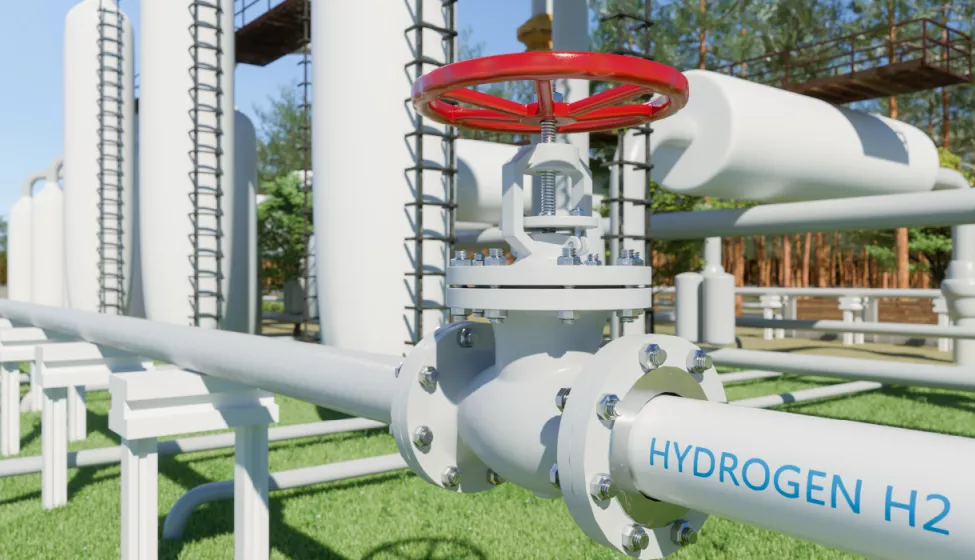October 7, 2021
Lifecycle assessments are providing conflicting results for some technologies based on differing assumptions
With the recent 6th Assessment Report from the United Nations Intergovernmental Panel on Climate Change suggesting the need for urgent action to reduce greenhouse gas (GHG) emissions, companies are looking for technologies to support their sustainability
transitions. Meanwhile, scientists are examining the available and proposed technologies to determine whether they could actually be effective at reducing net GHG emissions.
Recently, one group of researchers found that blue hydrogen — hydrogen produced using carbon capture technologies to prevent carbon emissions — may not reduce net GHG emissions, even though blue hydrogen burns without any GHG emissions. This stands in stark contrast to the United Kingdom's recently released hydrogen strategy that relies, in part, on blue hydrogen.
These differing conclusions highlight the importance of understanding lifecycle assessments for new sustainability technologies and their underlying assumptions.
Lifecycle assessment
The conclusion that blue hydrogen may not reduce GHG emissions is based on a complicated analysis known as a lifecycle assessment (LCA) that considers GHG contributions over the whole life of a product, typically including production, transportation, use, and disposal.
The recently published assessment assumed that blue hydrogen production, which relies on converting methane to hydrogen, would lead to significant GHG emissions due to leaks during methane extraction from natural gas wells. Methane is a potent GHG with a warming potential about 30 times that of carbon dioxide. According to the authors, the assumed leak rate was based on an average of 20 prior studies published by other researchers for typical fugitive methane emissions.
The assumed leak rate and the overall conclusion are being challenged. A representative for Equinor, which has blue hydrogen projects in the U.K., indicated that the methane leak rate in one of their projects was less than 1% of the value assumed by the authors. If true, this would indicate that while the authors' conclusions may be valid in some circumstances, there may be a significant set of other circumstances for which their assumptions on methane leak rate and overall conclusions are incorrect.
Lifecycle assumptions
LCAs require scientists to define the boundaries of the lifecycle and make numerous assumptions on a range of parameters used in the calculations. As a result, it is important to examine how an LCA is performed to understand its limitations and applicability.
A classic example of conflicting LCA results is whether corn ethanol generates less net GHGs than just burning gasoline.
According to the U.S. Department of Energy, if one assumes that an ethanol plant uses coal for the heat required to convert corn to ethanol, the net GHG emissions for corn ethanol are greater than gasoline. Conversely, if that heat is derived from natural gas, corn ethanol provides a reduction in GHG emissions. This demonstrates how different assumptions can reasonably lead to substantially different conclusions about the sustainability of a new technology.
Science is a process that evolves over time and relies on published studies, replicated studies, alternative studies, and rigorous debate to best understand a problem and its potential solutions, but the urgency of addressing global warming is driving actions to reduce GHGs, even while the science is still evolving.
This urgency in the face of evolving science creates risks for companies that are being pushed to adopt technologies and practices that are still being assessed. However, companies can still reduce their reputational and regulatory risk by critically evaluating sustainability technologies and practices by clearly defining and, if needed, expanding the scope and range of assumptions in LCAs.
How Exponent Can Help
Exponent offers strategic, multidisciplinary climate consulting to public and private sector stakeholders seeking to mitigate the risks of climate factors, reduce GHG emissions and water consumption, and assess the environmental and ecological impacts of business operations. Exponent can perform and review LCAs for technologies, products, and methods to better capture uncertainties and inform decision-making. Our broad expertise across numerous engineering disciplines, public health, ecological and environmental sciences, hydrology, natural resource damage assessment, and restoration and mitigation analysis gives our clients access to an unparalleled wealth of skills and resources that can help build unique solutions to unprecedented challenges.



